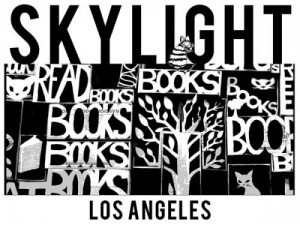Scott Timberg's Blog, page 21
December 1, 2014
Artists and the Cost of Living
WE see it again and again: A marginal — rough, industrial or just boring — neighborhood attracts artists and musicians and generates an “edgy” reputation. For a few years, good things happen. But after a while — and, often, a benign explosion of coffee shops and bike paths and cheese stores — the artists and musicians and fellow travelers are driven out by high rents. Hollywood players and hedge-fund guys move in. And a creative community — a music scene, a consortium of visual artists, and so on — disperses.
Today I discussed how this process works — and what the stakes are — in Los Angeles. Host Warren Olney, of “Which Way LA?”, spoke to me and three others, including artist Julia Meltzer of Clockshop. The program goes up on KCRW at 7 p.m. (Pacific time) tonight; it’s already up, here, online.
The subject made me think of two other posts I’ve put put up in recent months — this one, about visual artists in New York, and this one about San Francisco’s music scene being crushed by skyrocketing rents.
I should also mention an upcoming documentary film — Miracle on 42d St. — about subsidized housing for artists in New York, and which includes narration by Samuel L. Jackson, Larry David, An gela Lansbury and others who lived in or knew the place.
gela Lansbury and others who lived in or knew the place.
November 28, 2014
Don’t Forget Indies First and Small Business Saturday
TODAY, of course, is the start of holiday-shopping season — which sounds like a euphemism for something — so I want to remind me readers how important it is to frequent independent, brick-and-mortar shops when you go looking for books and music especially.
This year sees both the Indies First campaign — which urges support of independent bookstores — and Small Business Saturday, during which Neil Gaiman and other authors will volunteer at an indie.
Here is a link to the Indies First page.
A Wall St. Journal story says that so far, despite the crushing power of Amazon and chains, some indies are doing okay this year.
Hoping that many of my fellow Angelenos will shop at stores like Book Soup, Skylight Books, Vroman’s, Amoeba Music, or Rockaway Reccords.
If you are buying a guitar or strings, don’t forget shops like the Fretted Frog (Pasadena) or Imperial Vintage Guitar (Burbank) — both wonderful places run my musicians.

Image courtesy Skylight Books
Happy holidays to my readers.
November 26, 2014
Rock Bands and the Road
IF you’ve followed the debate about the post-label, post-album music world, you’ve heard the cries of the optimists: Just get in the tourbus! Even digital utopians will concede that revenues from recordings are way down, but they assure us that bands can make up the different by playing shows. It is part of a larger neoliberal gospel that says all that creative types need to do about the rigged new economy is to “adjust.”
The reality is that once you get below the level of the mainstream dinosaur acts — the Stones, Eagles, Billy Joel — and corporate behemoths like Taylor and Beyonce, things get tight very fast. The latest evidence of how difficult making money from the road can be comes from a member of Pomplamoose, a Bay Area  band with millions of YouTube hits and an enormous following, much of it from its oddball/ inventive covers of familiar songs.
band with millions of YouTube hits and an enormous following, much of it from its oddball/ inventive covers of familiar songs.
Here is Jack Conte, one of the group’s two members, on their latest tour:
Being in an indie band is running a never-ending, rewarding, scary, low-margin small business. In order to plan and execute our Fall tour, we had to prepare for months, slowly gathering risk and debt before selling a single ticket. We had to rent lights. And book hotel rooms. And rent a van. And assemble a crew. And buy road cases for our instruments. And rent a trailer. And….
All of that required an upfront investment from Nataly and me. We don’t have a label lending us “tour support.” We put those expenses right on our credit cards. $17,000 on one credit card and $7,000 on the other, to be more specific. And then we planned (or hoped) to make that back in ticket sales.
Well, the tour was enormously successful, with packed halls and adoring fan. And, the band lost money:
Add it up, and that’s $135,983 in total income for our tour. And we had$147,802 in expenses.
Conte concludes that it’s still worth it, and that there are ways — some of them new — for bands to make money. But please, when a group with this kind of following cannot even break even on a monthlong, 23-city tour, please stop telling us that all a band has to do is hit the road.
His whole piece — here — is worth a read, especially for musicians.
Is El Sistema Authoritarian?
A NEW book by a British academic has charged that the Venezuelan-born classical-music-for-all program is run like something between a corporation and a cult. I’ve not seen the book yet, but David Ng of the LA Times interviews its author, Geoffrey Baker. Here’s Baker — whose book is published by Yale University Press — discussing Jose Antonio Abreu:
El Sistema has a monopoly on classical music in Venezuela. Abreu is famed for his intolerance of criticism. There are many stories of people who have crossed him, and have been blacklisted and fired. Everyone depends on El Sistema to a degree and to go against it is professional suicide. None of these people would have spoken to me on the record. They were saying strong things. Anonymity was a first step to opening up.
The program’s most famous alum, of course, is LA Philharmonic conductor Gustavo Dudamel, who leads the El Sistema-affiliated Simon Bolivar Orchestra (pictured.)
The Guardian has a story by Baker in which he quotes someone calling the program “a model of tyranny.” This article takes a broader look at the program, especially in the UK.
November 25, 2014
Ani DiFranco and New Orleans Jazz
THE feminist singer-songwriter has been living in the Crescent City for about a decade now, and she works with a group that enlists kids into old-school jazz bands. DiFranco is the latest in my Trust Me On This series I’m handling for Salon.
Di Franco told me about her first visit to New Orleans, where she saw the Rebirth Jazz Band perform.
I ended up inviting the Rebirth on a tour with me and we spent a whole summer together so I got to know those guys and became friends especially with the snare drummer, Derrick Tabb. Derrick, as it turns out, is this deeply compassionate, dynamic person who, in the wake of Hurricane Katrina, saw this incredible deficit in New Orleans for kids. The infrastructure was so devastated by that storm that there were barely any schools open, let alone things for kids to do after school or places to go. So Derrick just said to himself, “I’m going to start a music school for these kids,” and he did! With all the skills that you or I would have in these matters, he started this free after-school music program, which has now grown exponentially and they have like 150 students.
And a bit later:
I think these poor kids, who have even less opportunity than most, are no different from all kids. Unless yo
u’ve had the opportunity to do something like learn the language of music — which is the universal language. I’ve had these experiences where I go to the other side of the world and I’m in the jungle in Burma with people escaping a violent death at the hands of a dictatorship and I show up a privileged, white person with this chasm between us … as soon as I get the guitar and play a song, it’s like, bam, family. You know? Music, you can’t underestimate the power it has to connect us through time and across the globe and help us to communicate with each other and see each other as humanity.
Our whole conversation is here.
November 24, 2014
Aimee Mann: Roots of a Songwriter
DESPITE our relentlessly gloomy attitude about the world of music and the arts, we CultureCrashers are major fans of Aimee Mann. We spoke to the LA-based singer-songwriter about artists who taught her something about songcraft — Dylan, Elton John, Gilbert O’Sullivan, about her first steps into writing, and the importance of song structure and music theory. Here’s my piece, which starts this way:
When I was a kid, the first time I really paid attention to lyrics in a different way was the (1972 Gilbert O’Sullivan) song “Alone Again (Naturally),” which was a hit on the radio, and the melody was really nice, I liked the vibe of it, it had a bouncy thing, which was maybe slightly melancholy. And then a friend said, “You know what that’s about, right?” And I said, “No,” and they said, “He’s going to commit suicide.” And that kind of changed the whole thing for me. It was like, for people who wanted to pay attention, there was almost a secret message. If you didn’t want to pay attention, there was this pretty thing, and maybe there was a line or two that stuck out – it would be a different kind of experience. But if you were paying attention, it was hiding in plain sight.
This is for a series I’m helming for Salon called Trust Me On This; there are several still coming.
Mann, by the way, has a recent collaborate album with the punk musician Ted Leo called The Both — it’s outstanding. She’s doing a couple of Christmas themed shows at club Largo in LA, on December 3 and 4. She then heads to the Bay Area and the East Coast. Full tour here.
“U.S. Orchestras Are Shrinking”
IF you’ve been following the creative economy lately, it’s hardly a surprise, but this makes for dispiriting reading: A New York Times story chronicles how American groups are responding to tough times. Through the 19th century, orchestras got bigger.
But as some American orchestras struggle in the post-downturn economy, they are taking a page from the corporate world and thinking smaller: They are downsizing, shedding some full-time positions while making up the difference with less costly part-time musicians.
The Atlanta Symphony Orchestra ended a contentious labor dispute and a two-month lockout this month by agreeing to a new contract that will effectively keep it smaller for the next few years — placing it in the company of major ensembles in Philadelphia, Detroit, Indianapolis, Minnesota and elsewhere that have temporarily or permanently trimmed their number of full-time musicians in recent seasons to save money. Some are now slowly rebuilding.
… musicians warn that an overreliance on freelancers endangers the things that make orchestras great: the cohesion that comes from playing together over many years, the performing traditions that are developed
and passed down, even the ability to divine in a flash what a familiar conductor is seeking with a cocked eyebrow or a flick of the wrist.
Is this move inevitable? Is there a point — a number of players or proportion of shrinkage — where serious and irrepperable damage to an orchestra’s mission takes place? How low can you go?
We’re surely better off with these groups surviving in smaller form than shutting down completely, but isn’t there a better way?
November 21, 2014
Overeducated and Underemployed
ONE of the oddest things about the brutal post-crash economy is that the average-is-over cries by neoliberals to educate the workforce for a global world have accompanied hard times for many educated people. It’s especially true for academics caught in the adjunct trap, though it is not unique to struggling scholars. It’s certainly an issue with troubling implications for the creative class, both those who’ve sought a berth inside the university system and those who haven’t.
A new story by a very tough-minded journalist I know slightly, Alissa Quart (who often writes about nonconformity and poverty; her most recent book is Republic of Outsiders) recently went up. (Originally in Elle, this link is to The Investigative Fund’s site.) Here’s her lead:
Professor Bolin, or Brianne, as she tells her students to call her, might as well be invisible. When I arrive at the building at Columbia College in Chicago where she teaches composition, I ask the assistant at the front desk how to locate her. “Bolin?” she asks, sounding puzzled, as she scans the faculty list. “I’m sorry, I don’t see that name.” There is no Brianne Bolin to be found, even though she’s taught four classes a year here for the past five years. She doesn’t have a phone extension to her name, never mind an office.
You can probably guess a bit where it goes from here, but the storytelling is really strong. I can only link to part of the story here — the rest is behind a paywall — but I assure all that is worth a read.
How did we get to a place where the stock market triples in just a few years time, with income at the top surging, while median income goes down? Or with universities — even public universities — jacking their prices way beyond what middle-class folks can afford, while professors with advanced degrees and years of experience are treated like this? Simply appalling. Please read Alissa’s story.
November 19, 2014
Real Estate (the Band) on Tour
LAST night I had the pleasure of seeing of my favorite current indie-rock groups play at the Belasco Theater in downtown Los Angeles. They remind me of several bands of past and present — The Velvet Underground, the Feelies, Luna, the Clientele — and have these gently transporting guitar harmonies.
It will be hard to hear on a computer or even playing an MP3, but these guys manage to make two guitars sound like ten. The blend of timbres coming off the guitars last night was really otherworldly. Last night’s show by the Brooklyn/New Jersey five piece was pretty straightforward, as they played most of the beautifully melodic songs from their recent LP, Atlas.
The surprise was an appearance by Rivers Cuomo from Weezer (pictured) , who sang and played guitar on one song.
, who sang and played guitar on one song.
This band has tapped into something magical, and it was a blast to feel all those sublime sonic vibrations. (I just wish they had a more memorable name.)
Here’s a link to their site, which includes the songs “Had to Hear” and “Crime.”
They head to a tour of Latin America today.
November 18, 2014
Billy Bragg: Taylor Swift vs. Spotify
RECENTLY, I’ve been puzzled over how to frame the Taylor Swift vs. Spotify fight. Having to take sides in that battle — between a plutocrat popstar and an exploitative streaming service — really makes me feel like I live in a dystopia. It’s sort of an illusion of choice. “Maybe I should just ignore it?” crossed my mind a few times.
In any case, the British rock musician Billy Bragg — a longtime hero of mine, who I used to see play regularly at the “old” 930 Club in Washington, DC — has framed the issue exactly right.
This comes from his Facebook post.
What a shame that Taylor Swift’s principled stand against those who would give her music away for free has turned out to be nothing more than a corporate power play. On pulling her music from Spotify recently, she made a big issue of the fact that the majority of the streaming service’s users listen to her tracks for nothing rather than signing up to the subscription service.
“I don’t agree with perpetuating the perception that music has no value and should be free” she said in a statement to Yahoo last week.
These worthy sentiments have been somewhat undermined by Swift making her new album and back catalogue available on Google’s new Music Key streaming service…..which also offers listeners a free service alongside a premium subscription tier.
Given that this year is the first to fail to produce a new million selling album, I can understand Taylo
r Swift wanting to maximise her opportunities with the new record – and it worked: she shifted 1.28m copies of 1989 in the first week of sale.
But she should just be honest with her fans and say “sorry, but Sergey Brin gave me a huge amount of money to be the headline name on the marquee for the launch of You Tube Music Key and so I’ve sold my soul to Google”.
If Ms Swift was truly concerned about perpetuating the perception that music has no value and should be free, she should be removing her material from You Tube, not cosying up to it. The de facto biggest streaming service in the world, with all the content available free, You Tube is the greatest threat to any commercially based streaming service.
You might ask yourself why Google are setting up a commercial streaming service that will ultimately have to compete with their own You Tube behemoth? My hunch is that they are following a ‘Starbucks strategy’: it doesn’t matter if your own coffee shops on every corner are competing with one another, so long as they ultimately put all of your rivals out of business.
Google are going after Spotify and Taylor Swift has just chosen sides. That’s her prerogative as a savvy businesswoman – but please don’t try to sell this corporate power play to us as some sort of altruistic gesture in solidarity with struggling music makers.”
Bragg has been an eloquent voice for artists rights, and he hits the matter on the head here.
Scott Timberg's Blog
- Scott Timberg's profile
- 7 followers




